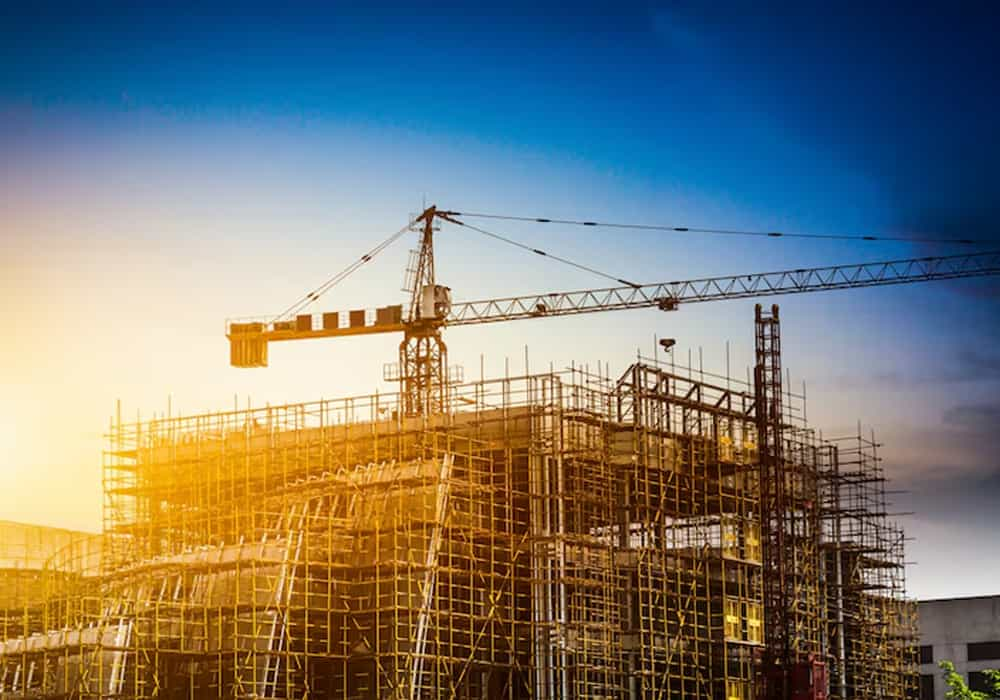
In the fast-paced healthcare industry of today, the demand for high-end healthcare infrastructure is gaining momentum. With the population of India still on the rise while demanding more medical attention, the demand for specialized healthcare centers—ranging from clinics, hospitals, and specialty medical centers—has multiplied. Under such a scenario, the role of high-quality, efficient, and dependable construction services for healthcare centers cannot be exaggerated.
Constructing healthcare buildings takes more than simply building walls and roofs; it takes constructing spaces that are focused on patient care, safety, comfort, and efficiency. The success of healthcare buildings depends directly on the professionalism of the construction company undertaking the work. From planning to post-construction services, a comprehensive approach to construction is essential in making these medical buildings stand at their best.
In this blog, we’ll explore the best construction services available for healthcare facilities in India, focusing on the various aspects of construction, key services provided, and why these services are essential for creating world-class healthcare environments.
Why Healthcare Facility Construction Is Critical
Healthcare infrastructure is vital in the provision of healthcare services. Healthcare infrastructure entails designing, building, and maintaining medical buildings that are safe, efficient, and supportive of patient recovery. Proper healthcare facilities not only offer the physical place where healthcare providers can provide care but also promote patient safety, comfort, and healing through the optimal environment. Below are some of the primary reasons why healthcare facility construction is essential:
- Patient-Centric Design: The hospital design and structure have a direct impact on the care of the patients. An ill-designed hospital can result in inefficiencies, higher patient stress levels, and safety issues.
- Technological Integration: Contemporary healthcare buildings need to integrate cutting-edge technology, such as medical equipment, IT infrastructure, and energy-saving systems.
- Regulatory Compliance: Medical facilities have to adhere to numerous local and global standards for safety, hygiene, and accessibility. Construction services should comply with these in order to establish the facility as per the standards required.
- Sustainability: As there is more environmental concern being raised now, healthcare construction needs to incorporate green features, including energy-efficient systems, water conservation solutions, and waste management.
Key Services Provided by Healthcare Construction Companies in India
1. Site Analysis and Preparation
The initial part of constructing any medical facility involves detailed site examination and preparation. It involves examination of the ground to determine if the land is fit, pinpointing any environmental or logistical concerns, and laying the ground prepared for construction. The key details in this service comprise:
- Topographical Survey: There's a very accurate survey done of the terrain in order to know any obstacle that could possibly have an influence during the period of construction like slope, water drain, and earth stability.
- Soil Testing: This will confirm that the building foundation is firm and strong enough to carry the weight of the building.
- Accessibility and Infrastructure Planning: The facility should be accessible to both patients and staff, such as parking spaces, emergency exits, and service access points.
2. Architectural Design and Planning
The building design of healthcare buildings is a crucial factor in determining the functionality, comfort, and safety of the building. Healthcare construction services have to design the building in a way that addresses operational requirements while prioritizing patient care and comfort. This stage involves:
- Designing Patient-Centric Spaces: Developing spaces that enhance healing, such as comfortable patient rooms, waiting spaces, and treatment areas, while ensuring high functionality for medical staff.
- Patient Flow and Building Layout: Effective layout design helps patients navigate between departments without any hindrances, and the healthcare staff is able to complete their tasks on time without unnecessary delays.
- Regulation Compliance: To ensure that the design meets the health and safety regulations, fire safety, sanitation, and accessibility requirements.
- Aesthetic Design: While functionality is paramount, aesthetics play an important role in creating a welcoming environment that reduces patient anxiety and contributes to healing.
3. Structural Engineering Services
Structural engineering forms the core of any construction project of a healthcare facility. Healthcare facilities are exposed to high loads from medical equipment, patients, and staff. Additionally, healthcare facilities need to be designed to resist natural disasters like floods, storms, and earthquakes. Structural engineering services comprise:
- Foundation Design: The foundation needs to be designed to bear the weight of the building and adapt to the soil conditions at the site.
- Reinforced Concrete and Steel Structures: Healthcare facilities need to have long-lasting materials to guarantee the structure is strong enough to support the weight of medical equipment, patient beds, and other operational requirements.
- Disaster Resilience: Seismic-resistant foundations, fireproof materials, and other protective measures are included in the structural design to guarantee the building will still be functional in case of an emergency.
4. MEP (Mechanical, Electrical, Plumbing) Services
MEP services are essential to the efficient operation of any healthcare facility. The systems are what make sure that the building runs efficiently and comfortably for both the staff and patients. MEP services involve:
- Mechanical Systems: Heating, ventilation, and air conditioning systems need to be created to suit the unique demands of healthcare settings. Clean air as well as temperature control are needed to avoid the spread of infections as well as to ensure patient comfort.
- Electrical Systems: Medical facilities need an uninterrupted and consistent power supply. MEP contractors ensure that the electrical systems are resilient, with redundancy power options like backup generators and uninterruptible power supplies (UPS).
- Medical Gas Systems and Plumbing: Clean plumbing systems are essential for waste disposal, water supply, and medical gas. Clean water is needed for both patient treatment and hygiene purposes, while medical gas systems are required for operations and other critical care procedures.
5. Emergency Systems and Fire Safety
Hospitals and health facilities are risky places to be, and as such, fire safety and emergency systems are an absolute must. Complete fire safety services comprise:
- Fire Detection Systems: Smoke detectors, fire alarms, and sprinklers should be installed all over the building so that early detection and response towards fire risks are possible.
- Emergency Evacuation Plans: Specific evacuation paths, emergency exits, and stairwells should be included in the design of the building so that evacuation is possible in the case of a fire or any other emergency.
- Backup Power Systems: When the power goes out, hospitals and healthcare facilities need to have backup generators to keep critical systems, such as ventilators and operating room lighting, running.
6. Sustainable and Green Building Practices
Sustainability is becoming an increasing issue in the construction sector, and healthcare facilities are no exception. Sustainable building methods decrease energy usage, minimize environmental footprints, and decrease operational expenses. Some of the most important green building services are:
- Energy-Efficient Design: Solar panels, LED lighting, high-efficiency HVAC systems, and insulation materials can lower energy usage in healthcare facilities.
- Water Conservation: Rainwater harvesting, water-conserving fixtures, and greywater systems conserve freshwater consumption.
- Waste Management: Medical and non-medical waste disposal, recycling, and waste-to-energy technologies support sustainability at the facility.
7. Project Management and Execution
Good project management ensures that the healthcare facility building process goes through smoothly, on schedule, and within budget. Some of the salient features of project management are:
- Scheduling: Making sure that every stage of the construction is done on schedule and that resources are utilized effectively.
- Procurement: Coordinating the procurement of labor and materials, making sure that the right resources are in place at the right time.
- Quality Control: Making sure that all construction processes are up to the required quality standards and in accordance with building codes and regulations.
8. Post-Construction Services
After the completion of the healthcare facility, there is a priority to keep the building functional and running efficiently. Post-construction services are as follows:
- Facility Management: Continuous maintenance of building systems, such as HVAC, plumbing, electric, and medical gas systems.
- Staff Training: Training of healthcare personnel to operate effectively in the new building's systems, including operation of equipment, emergency response procedures, and maintenance procedures.
- Continuing Maintenance: Periodic checks and maintenance are necessary to keep the facility in top shape and meet changing healthcare standards.
Challenges of Healthcare Construction in India
Though the need for healthcare facilities is increasing at a rapid pace in India, there are a number of challenges construction firms encounter:
- Land Acquisition: Acquiring land in cities for healthcare construction is a costly and time-consuming process.
- Regulatory Compliance: The construction industry in healthcare has to comply with many regulations, which differ by location and tend to evolve over time.
- Skilled Labor Shortage: There is a shortage of skilled labor, especially in specialized fields such as healthcare facility construction, which can slow down projects.
- Cost Management: The increasing cost of raw materials and labor can affect the overall cost of healthcare construction projects.
Conclusion
Healthcare facility construction is a complex and specialized process that demands a full range of services. From the first design stages to the ultimate post-construction management, every stage of healthcare construction needs to be aimed at producing a safe, comfortable, and functional environment for patients and healthcare providers alike. By selecting the best overall construction services for healthcare facilities in India, healthcare providers can be sure that their buildings are at their best quality, safety, and efficiency standards.
Since India's healthcare sector is expanding and growing, with it also emerges the demand for well-planned, technologically equipped, and sustainable healthcare complexes. Having an association with a well-established healthcare facility constructor is critical towards ensuring that your project fulfills all the needs, is achieved on schedule, and addresses the healthcare needs of the community in the long run.


